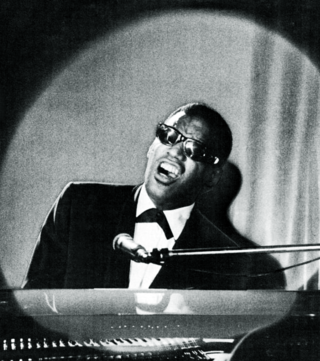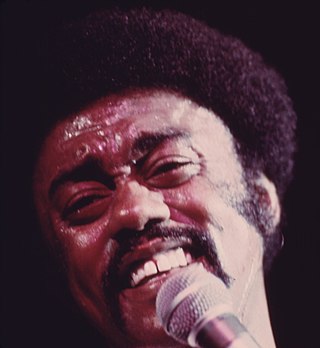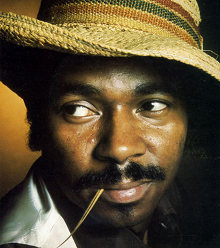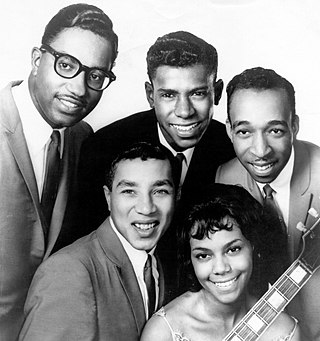This article needs additional citations for verification .(June 2009) |
Ember Records was a British independent record label established by Jeffrey Kruger.
This article needs additional citations for verification .(June 2009) |
Ember Records was a British independent record label established by Jeffrey Kruger.
Ember Records was founded in the late 1950s, by avid jazz fan Jeffrey Kruger, owner of the Flamingo Jazz Club. At the time, the British music industry was largely dominated by four major record companies (EMI, Decca, Pye and Philips) who, thanks to the lack of a national popular music radio station, dominated the airwaves by buying slots on Radio Luxembourg. Therefore, the only way independent record labels could achieve any success was by focusing on specialist genres.[ citation needed ]
Kruger realised that considerable success could be gained if, rather than focusing on one specific musical genre, he instead focused on a plethora of them. Releases under the jazz, pop, R&B, beat, soul, rockabilly, and other genres followed, and Kruger started to establish Ember as a major independent force in the UK. As Kruger explained:
I had the publishing on a Continental hit called ‘Banjo Boy’ sung by Jan & Kjeld, two teenage Danish boys. I got it covered by several artists but my contract stipulated that I had to secure a British release for the original version. None of the majors would touch it so I designed labels myself, had 250 45rpm singles pressed on a converted button press in Dagenham, and my Ember label was born. I didn’t know how you were supposed to distribute records so I drove round dozens of independent record shops selling them myself. Then I went down to BBC radio who reluctantly agreed to give it some airplay, and before I knew it distributors around the country were phoning me for copies of the single and we had a Top 40 hit.
The first major achievement and breakthrough for the label came when Kruger realised the rising demand for American music acts in Britain and that some popular American labels had not yet had a publishing deal in the UK, despite the major British labels already having deals with the most important ones. Kruger flew out to the US and made deals with, amongst others, 20th Century Fox (a major coup for an independent at the time), Sam Phillips, Harry Simeone Chorale’s ‘Onward Christian Soldiers’ label and Syd Nathan, boss of King and Federal Records in Ohio.
As Kruger recalled:
Syd was a small, heavy set man, kindly but shrewd. He met me at the airport and the first thing he did was to whisk me off to a World series baseball game where I tried not to look too bored! Eventually, after the game was over, we got down to business. I couldn’t afford big advances in those days and told him so but I think he saw in me some of my enthusiasm and chutzpah that he’d had as a young man, and he agreed to lease me some singles by Earl Bostic, the Platters and a few more. I sent him regular statements and (modest) royalty cheques, he leased albums by Bill Ward’s Dominoes, James Brown, Billy Eckstine and other top artists to Ember, and our relationship carried on happily for several years.
Becoming the first British label to set up its own distribution and pressing facilities helped Ember cement their place in the industry. By 1963, Ember had built up a roster of UK artists such as Matt Monro, the Dale Sisters, [1] Grant Tracy and the Sunsets, and the duo John Shakespeare and Ken Hawker (recording as Carter, Lewis & the Southerners). The next big break came when composer, producer and arranger John Barry left EMI to join Kruger. During his time with Ember, he scored hits with pioneering folk duo Chad & Jeremy, and "Christine" by "Miss X" (Joyce Blair), a song which referred to the Profumo scandal. [2]
As the decade wore on, the label continued to release records from across the musical spectrum, from film and TV themes such as the Liars (which established a young Nyree Dawn Porter), to the soul 45 RPM singles for which the label became renowned. These featured acts such as The Casinos, the Checkmates and Lou Lawton, Stax hitmakers the Bar-Kays, King Curtis and the Pac-Keys.
On the recommendation of John Abbey, who set up the subsidiary soul label Speciality where some of those previous releases first appeared, Kruger gave a debut to Glen Campbell, the man who would go on to become Ember’s biggest success. Despite a considerable investment from Kruger, however, they struggled to achieve success, at least initially.
"Glen seemed to specialise in songs about unfashionable American Towns”, recalls Kruger. “So it was no surprise that his next 45, and Ember’s first release of 1969, was called ‘Wichita Lineman’. What was a surprise was that this time we hit the jackpot. The record was unstoppable, hitting the Top Ten and sparking off a string of hit singles and LP’s for Glen.
It was around this time that the label became the first British independent label to have three of its singles at the top of the American charts.
In the early 1970s, the label released recordings by Julie Rogers and Susan Maughan, and helped the career of Avengers actress Linda Thorson, in a similar fashion to what had happened with Twiggy a few years earlier.
In 1979, after Kruger had continued to put out a substantial number of soul releases by artists such as Ed Robinson, Tony and the Tyrones and golden oldies such as Gladys Knight, as well as new albums by PJ Proby and Johnny Otis, the label entered a less active period. By this stage, Kruger was involved with a number of other businesses in the music industry, being a concert promoter among other activities, and felt he could no longer meet the time restraints of running a label.
In 2009, Fantastic Voyage, a subsidiary of the Future Noise record label, started releasing a series of albums focused on the various genres Ember had promoted. This was to coincide with the fiftieth anniversary of the first Ember release and the thirtieth anniversary of the last. In 2016, the Ember catalogue moved to Cherry Red Records in the UK.

Atlantic Recording Corporation is an American record label founded in October 1947 by Ahmet Ertegun and Herb Abramson. Over the course of two decades, starting from the release of its first recordings in January 1948, Atlantic earned a reputation as one of the most important American labels, specializing in jazz, R&B, and soul by Aretha Franklin, Ray Charles, Wilson Pickett, Sam and Dave, Ruth Brown and Otis Redding. Its position was greatly improved by its distribution deal with Stax. In 1967, Atlantic became a wholly owned subsidiary of Warner Bros.-Seven Arts, now the Warner Music Group, and expanded into rock and pop music with releases by Crosby, Stills, Nash & Young, Led Zeppelin, and Yes.

Soul music is a popular music genre that originated in the African-American community throughout the United States in the late 1950s and early 1960s. It has its roots in African-American gospel music and rhythm and blues. Soul music became popular for dancing and listening, where U.S. record labels such as Motown, Atlantic and Stax were influential during the Civil Rights Movement. Soul also became popular around the world, directly influencing rock music and the music of Africa. It also had a resurgence in the mid-to late 1990s with the subgenre neo-soul, which added modern production elements and influence from hip-hop.
Motown is an American record label owned by the Universal Music Group. It was founded by Berry Gordy Jr. as Tamla Records on January 12, 1959, and incorporated as Motown Record Corporation on April 14, 1960. Its name, a portmanteau of motor and town, has become a nickname for Detroit, where the label was originally headquartered.

Johnnie Harrison Taylor was an American recording artist and songwriter who performed a wide variety of genres, from blues, rhythm and blues, soul, and gospel to pop, doo-wop, and disco. He was initially successful at Stax Records with the number-one R&B hits "Who's Making Love" (1968), "Jody's Got Your Girl and Gone" (1971) and "I Believe in You " (1973), and reached number one on the US pop charts with "Disco Lady" in 1976.

Vee-Jay Records is an American record label founded in the 1950s, located in Chicago and specializing in blues, jazz, rhythm and blues and rock and roll.
Popular music of the United Kingdom in the 1980s built on the post-punk and new wave movements, incorporating different sources of inspiration from subgenres and what is now classed as world music in the shape of Jamaican and Indian music. It also explored the consequences of new technology and social change in the electronic music of synthpop. In the early years of the decade, while subgenres like heavy metal music continued to develop separately, there was a considerable crossover between rock and more commercial popular music, with a large number of more "serious" bands, like The Police and UB40, enjoying considerable single chart success.
Philadelphia International Records (PIR) was an American record label based in Philadelphia, Pennsylvania. It was founded in 1971 by songwriting and production duo Kenneth Gamble and Leon Huff along with their longtime collaborator Thom Bell. It was known for showcasing the Philadelphia soul music genre that was founded on the gospel, doo-wop and soul music of the time. This sound later marked a prominent and distinct era within the R&B genre. During the 1970s, the label released a string of worldwide hits that emphasized lavish orchestral instrumentation, heavy bass and driving percussion.
Glen Goldsmith is a British singer and songwriter. His own hit songs have included "I Won't Cry", "Dreaming", "Save a Little Bit" and "What You See Is What You Get", which feature on his album What You See Is What You Get. Goldsmith also appeared in the line-up for the Band Aid II single, "Do They Know It's Christmas?", in 1989.

Van Allen Clinton McCoy was an American record producer, arranger, songwriter and singer. He is known for his 1975 internationally successful hit "The Hustle". He has approximately 700 song copyrights to his credit, and produced songs by such recording artists as Brenda & the Tabulations, David Ruffin, The Stylistics, The Presidents, Faith, Hope & Charity, New Censation, Gladys Knight & the Pips, Aretha Franklin, Peaches & Herb, Lesley Gore, and Stacy Lattisaw.
People from the Caribbean have made significant contributions to British Black music for many generations.

Paul Williams, known professionally as Billy Paul, was an American soul singer, known for his 1972 No. 1 single "Me and Mrs. Jones". His 1973 album and single War of the Gods blends his more conventional pop, soul, and funk styles with electronic and psychedelic influences.

Mint Condition is an American R&B band from Minneapolis, Minnesota. The band is focused on diverse genres such as jazz, hip hop, funk and dance. Mint Condition has also been nominated for one Grammy and three Soul Train Awards. The group is credited with being one of the last major funk bands to chart before hip-hop and new jack swing dominated black music in the 1990s.

This article includes an overview of the major events and trends in popular music in the 1970s.
Ray Singer is a British record producer and owner of Singer Records. Singer was instrumental in launching the careers of Peter Sarstedt, David Sylvian, Japan, and Ana Silvera.

This article includes an overview of the events and trends in popular music in the 1960s.
This article includes an overview of the major events and trends in popular music in the 1950s.
British rhythm and blues was a musical movement that developed in the United Kingdom between the late 1950s and the early 1960s, and reached a peak in the mid-1960s. It overlapped with, but was distinct from, the broader British beat and more purist British blues scenes, attempting to emulate the music of American blues and rock and roll pioneers, such as Muddy Waters and Howlin' Wolf, Chuck Berry and Bo Diddley. It often placed greater emphasis on guitars and was often played with greater energy.

The Flamingo Club was a jazz nightclub in Soho, London, between 1952 and 1969. It was located at 33–37 Wardour Street from 1957 onwards and played an important role in the development of British rhythm and blues and modern jazz. During the 1960s, the Flamingo was one of the first clubs to employ fully amplified stage sound and it used sound systems provided by ska musicians from the Caribbean. The club had a wide social appeal and was a favourite haunt for musicians, including The Who.
President Records is a British independent record label. It is one of the oldest independent record companies in the UK, originally launched in 1957 by Edward Kassner. During the 1960s and 1970s the label, and its subsidiary Jay Boy, had hits with artists including the Equals, George McCrae and KC & the Sunshine Band, Paintbox, and later focused on releasing back-catalogue compilations as well as occasional new albums by artists such as Robots In Disguise. President Records remains part of the Kassner Music Group.
Jeffrey Sonny Kruger MBE was a British entertainment business executive who owned the Flamingo Club in Soho, London, established the independent record label Ember Records, and set up the music business conglomerate TKO.